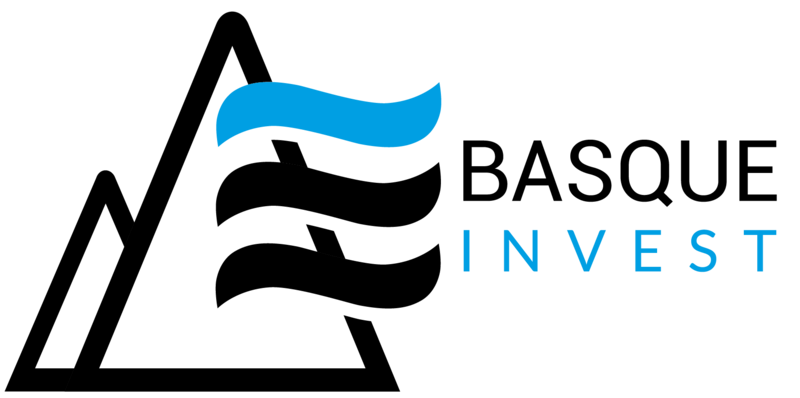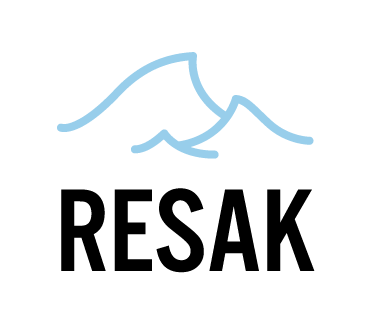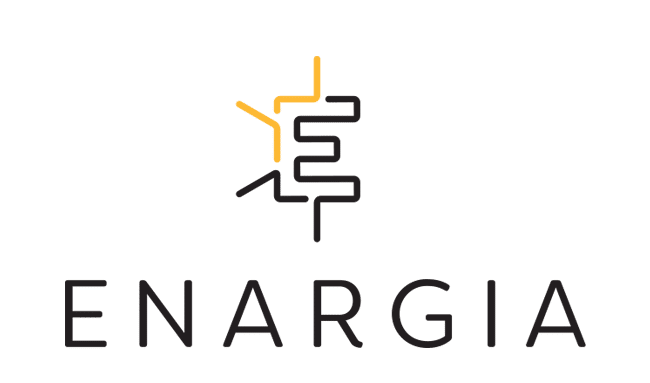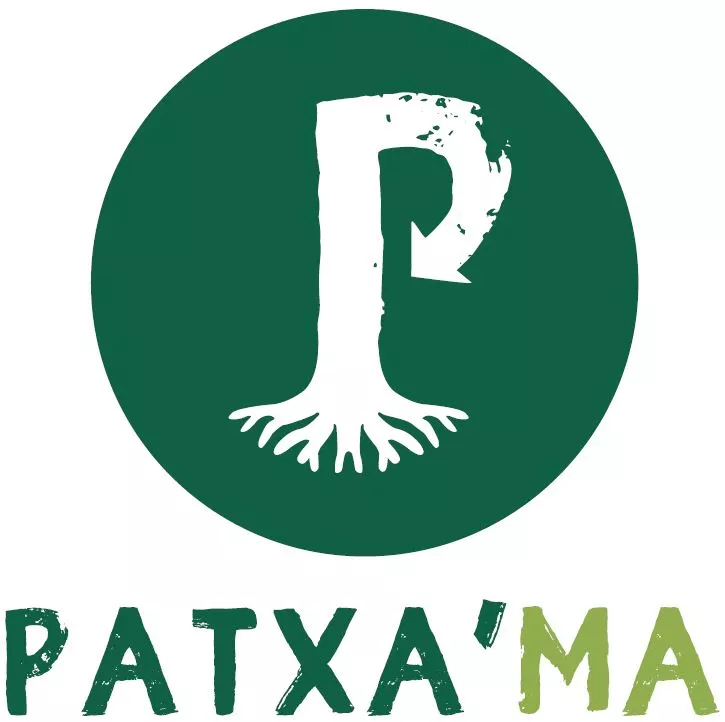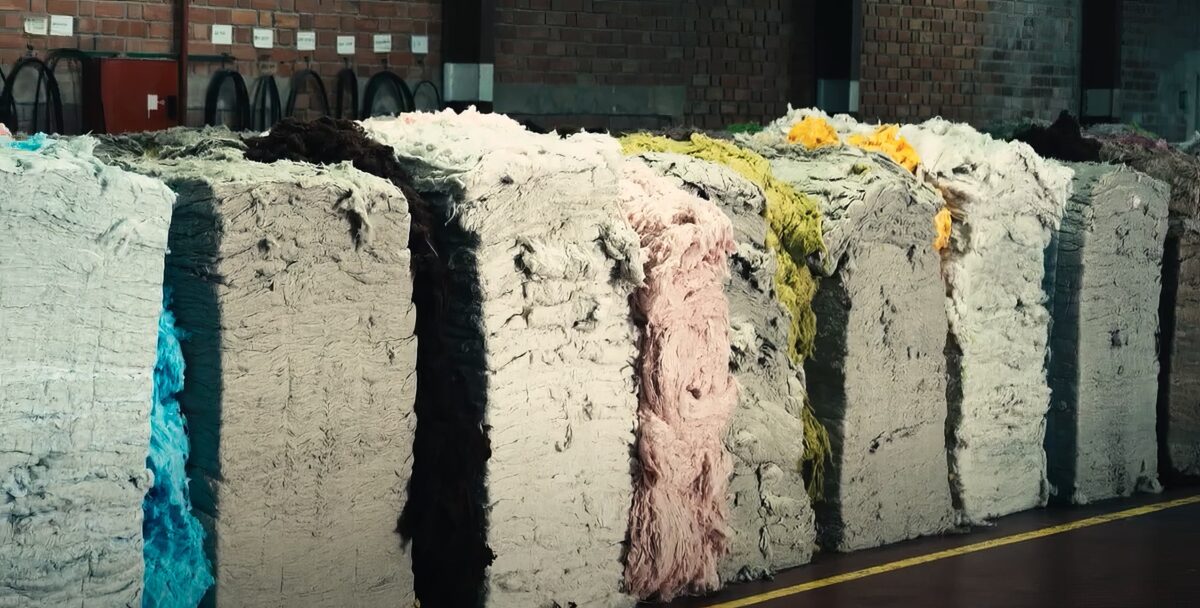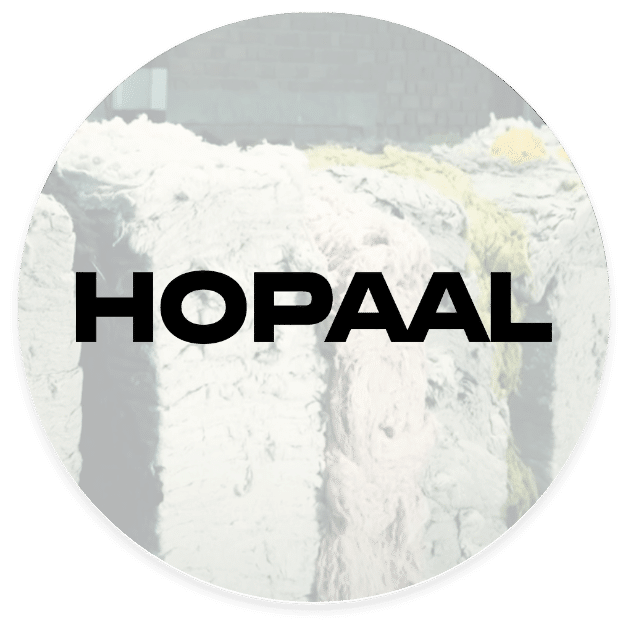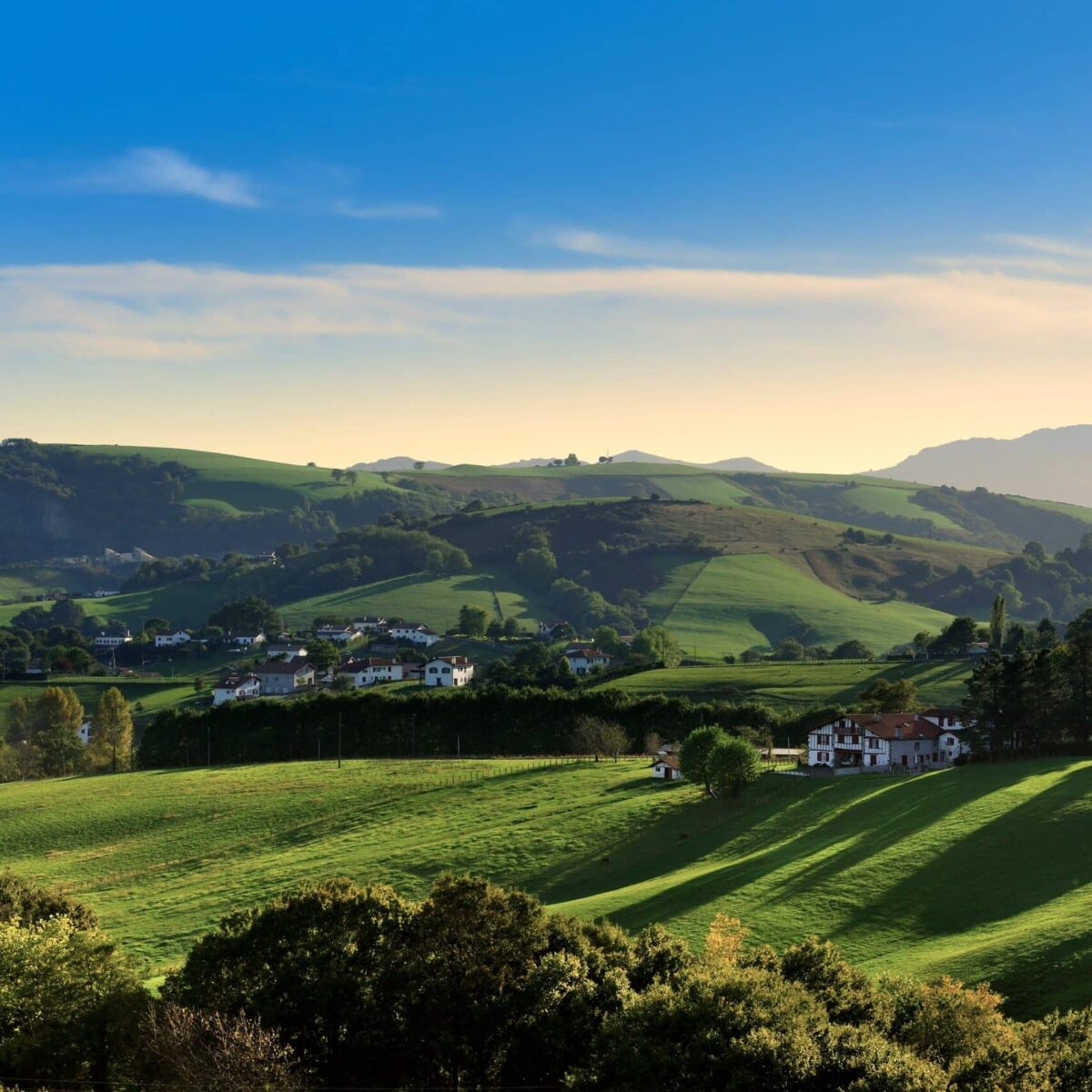
Circular economy companies
in the Basque Country
The Basque Country’s stunning location between the ocean, mountains and forests has always inspired a respect for nature. As proof of this, our coastline has preserved its authenticity in the face of the region’s success as a tourist destination. We also encourage the emergence of projects linked to renewable energies, recycling, marine energies and eco-design.
The blue economy in the basque country
Research is currently being carried out in a variety of sectors, from waste management and energy production (methanization, marine farms) to energy conservation (eco-design) and limiting greenhouse gas emissions.
In the Basque Country, we are fortunate to host a number of projects promoting the circular economy, the blue economy, eco-construction, the reduction of environmental impacts and the transformation of our resources. Find out more below.
The economy of the sea – or blue economy – concerns all activities linked to the sea, such as industry, logistics, innovation and agri-food. The Basque Country is a prime location for this sector. The surfing industry, for example, combining boardsports, high tech and sustainable development, represents 4,000 jobs in Nouvelle Aquitaine and annual sales of around 2 billion euros (EuroSIMA). The blue economy as a whole in Nouvelle Aquitaine (coastal and maritime economy) represents 49,000 jobs, including 4,000 in the Basque Country, in 950 companies (Technopole Pays Basque).
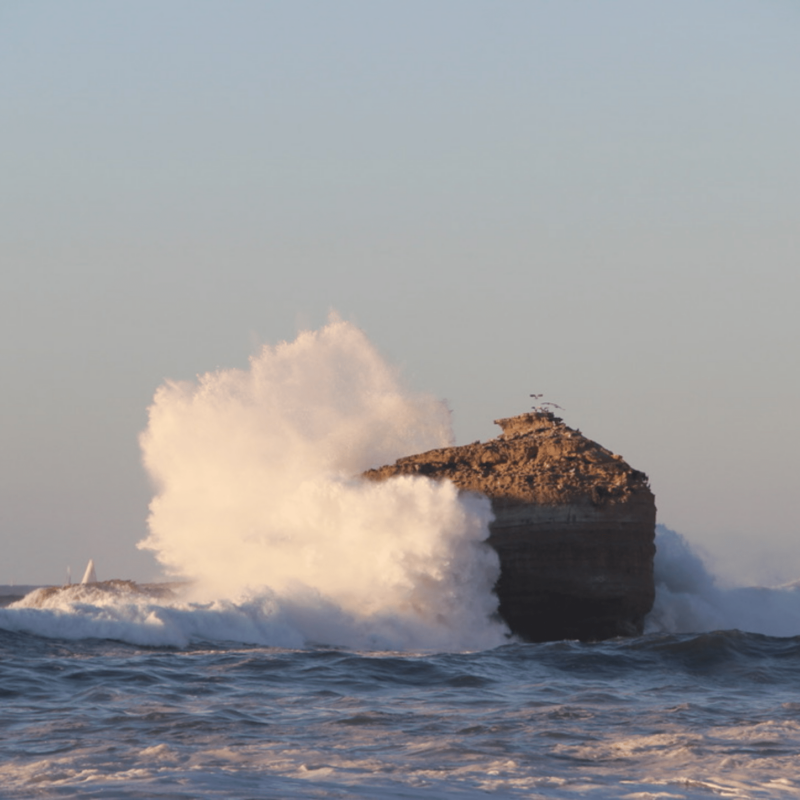
The Port of Bayonne is an excellent strategic point for European trade, ideally located in between the ports of Bordeaux and Bilbao and offering a first-rate logistics platform. It sits at the intersection of two motorways (North/South and East/West) and is directly linked to the European rail network. It is also close to Biarritz international airport. The port can handle all types of traffic – bulk solids and liquids, general cargo, metal products, containers, roll on/roll off, coastal shipping, special parcels, etc.
The Regional Council and the Bayonne Pays Basque Chamber of Commerce and Industry have joined forces to create the Bayonne Port Operating Company. This company offers the largest land bank in the Basque Country, with 22 hectares available under temporary occupation permits (AOT) for industrial production activities linked to maritime traffic. An OFP (local rail operator) is available to provide alternative solutions to multimodal transport (rail, road, ship).
According to the French Ministry of Ecological Transition, an OFP is a “local rail SME providing local freight transport and managing the infrastructure on a delegated basis”. This makes it possible to meet transport needs for short distances, and to offer greener alternatives. Rail transport, for example, reduces the number of heavy goods vehicles on the roads, thereby cutting carbon dioxide emissions as well as fuel costs.
A number of clusters and projects are emerging to develop this blue economy sector, notably :
- The Croissance Bleue cluster by the Nouvelle Aquitaine region. It enables the development of important marine resources by using new technologies and drawing inspiration from the models that nature has created (biomimicry, biosourced materials), to create a much more circular economy. Industrial activities must coexist with tourism to create jobs on the coast. The aim is to raise the profile of the region and its players on a national and international scale.
- ID Océan, by Technopole Pays Basque. This project aims to make the Basque Country a laboratory for innovations that serve the coast and the ocean. This technopole will provide researchers and companies in the blue economy with cutting-edge scientific tools, and benefit from the region’s expertise in marine biomimicry and eco-innovation. Biomimicry is a promising approach that circular economy players in France, and particularly in the Basque Country, are taking an interest in, in order to develop innovative solutions inspired by nature. ID Océan can take advantage of the Créaluz incubator and prototyping workshop in Saint-Jean-de-Luz to develop its projects.
Renewable energies in the basque country

Our region has the resources to harness renewable energies: marine (wave) energy, solar and agricultural waste that can be turned into energy. Numerous initiatives are underway to make the most of these resources, while also limiting their environmental impact.
ESTIA (Ecole Supérieure des Technologies Industrielles Avancées), one of France’s leading engineering schools based in the Basque Country, has developed a research platform (ENERGEA) working on renewable energies and optimization of electrical networks. Initially used as a teaching tool, the platform can now be used to help other companies, also as an aid to the more responsible construction of ESTIA’s new building (ESTIA 3), which hopes to welcome more engineering students to the Basque Country.
The ocean can also be a renewable energy source in its own right. This is what ID Océan is working on, in partnership with the Nouvelle Aquitaine region and supported by Technopole Pays Basque – testing the feasibility of producing energy from swell, via a pilot wave farm.
In 2022, the Communauté d’agglomération Pays Basque gave a boost to renewable energies, by choosing Enargia (a local cooperative based in Ascain) to supply renewable energy to the 24 public and semi-public structures managed by its purchasing group. This enables the structures to benefit from local renewable energy at a reasonable price. The Pays Basque Agglomeration Community also enables its members to be supplied with biomethane, a 100% renewable natural gas, thanks to Gaz de Bordeaux.
In the Pays Basque, 12% of energy needs are covered by local renewable energies. By 2030, the Climate Plan aims to increase this share to 30%.
Eco-construction, recycling and waste management
The circular economy in France entails numerous waste management and recycling initiatives. The construction and public works sectors are particularly concerned by the need to limit their environmental impact, which has led to the birth of eco-construction.
In the Basque Country, an entire zone is now dedicated to eco-construction – the Arkinova technopole. Located in Anglet and dedicated to sustainable construction, “part of the site is already occupied by the Nobatek technology resource center, the ISA BTP engineering school, laboratories at the Université de Pau et des Pays de l’Adour, the Lycée Cantau and the Fédération Compagnonnique des Métiers du Bâtiment” explains the Technopole Pays Basque.
The engineers and other specialists in sustainable development and construction work with companies in order to help integrate environmental criteria into real estate projects and the design of building materials and processes.
One example of a company committed to the circular economy, and particularly eco-construction, in the Basque Country is Patxa’ma. Created in 2019 as an association, Patxa’ma started from the observation that 800,000 tonnes of waste are produced every year in the Basque Country by the construction and public works sector (among the 228 million tonnes of waste produced in France). Despite the growing commitment of the Communauté Pays Basque and local players to the circular economy, action was needed to give this waste a second life. Working on construction sites, Patxa’ma organize operations to recover materials destined to be thrown away and sell them at low prices. “Since Patxa’ma began in 2019, we have diverted 100 tonnes of materials from landfill and put them back into circulation,” explains Olivier Hirigoyen.
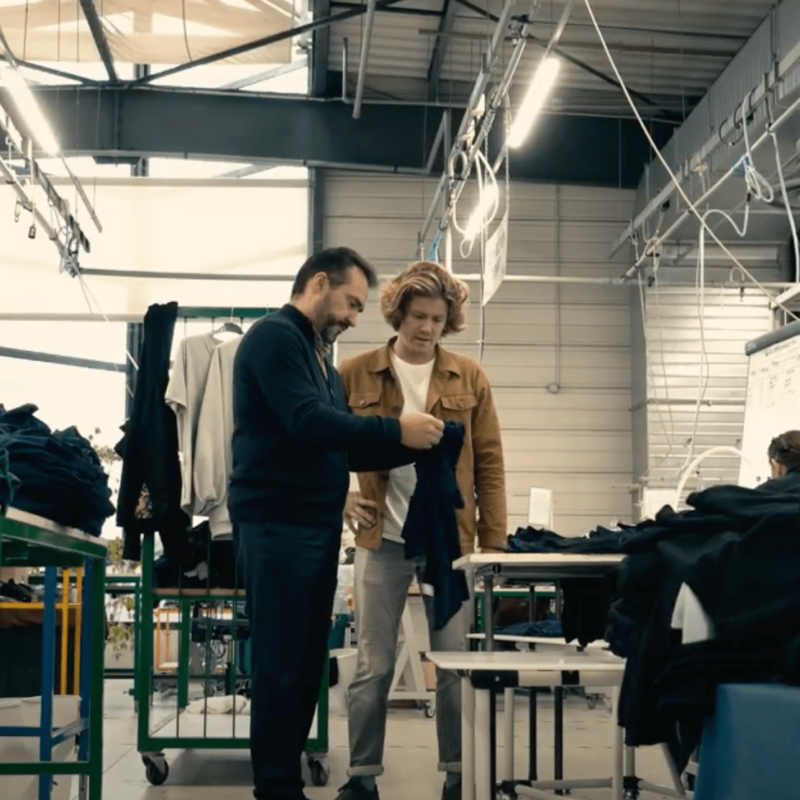
When it comes to recycling waste, the Basque Country is also home to other initiatives such as Resak and LookUp. Both these companies offer products for sale made entirely from recycled plastic waste from the region, the perfect example of the circular economy. Resak recycled 500 kg of waste in 2021, and aimed to manage 3,000 kg by 2023, thanks to the growing importance of the circular economy in our region.
The textile industry is also highly polluting, but efforts can be made to limit environmental impact. HOPAAL, a 100% Basque brand, understands this. HOPAAL is a responsible brand that protects and preserves the environment by re-inventing each stage of a value chain usually seen in the fashion system.
The aim is to recycle waste so that it doesn’t end up in our garbage cans or in the environment. Thanks to this innovative strategy, 88% of their materials were recycled by 2021. What’s more, HOPAAL favors “made in France”, with 88.5% of its weaving and 52% of its garment manufacturing taking place in French production workshops.
In the aeronautics sector, developing a circular economy is a major challenge. Optima Aero, a Canadian company with its European headquarters in Anglet since 2022, is rising to this challenge. The company is an innovator in its sector, specializing in helicopter recycling. Eventually, it would like to open a factory on site to dismantle helicopters, recycle and refurbish spare parts for resale.
The advantages of locating a company in the circular or blue economy in the basque country
The Basque Country is a territory rich in resources, from natural elements like the ocean, to the wealth of projects launched or underway to promote a more circular economy in our region. Overall, the Basque population is keen to preserve its territory and is respectful of its environment. That’s why local authorities are increasingly supporting and encouraging circular economy and blue economy projects, in order to continue this process of reclaiming our resources. Clusters, technopoles and cooperatives demonstrate the dynamism of our region in this field and the very interesting synergies that can be generated with local engineering schools such as ESTIA or industrial sites.
Do you have a circular economy project? Would you like to implement an innovation that will benefit the coastline and marine ecosystems? Do you have a solution for making our economy more sustainable, transforming our waste management or developing more responsible construction? BASQUE INVEST can help you find the right contacts to support your project. The circular economy in France is a subject that concerns us all, and the Basque Country wants to be an even more innovative and dynamic territory in this field.
